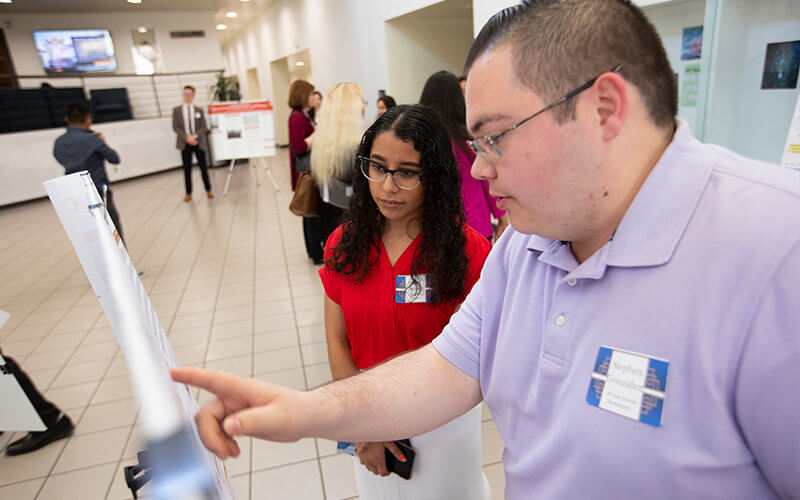
By the time Stephen Gonzalez was 7, he was helping his parents clean offices most evenings. While his parents continued to work into the morning hours, he and his sister would sleep in the car until 3 a.m.
“It was scary for us because the places where my parents cleaned weren’t always the safest,” he recalled.
Gonzalez’s family frequently moved to accommodate his father’s jobs and, many times, lived in their car. Because his parents weren’t U.S. citizens, food stamps and other safety net programs weren’t available.
“I went to six different elementary schools,” he said. “I was always behind because each school district was at a different stage in their curriculum when I’d arrive.
“I would always cry when I had to leave my friends when changing schools,” shared Gonzalez, who battled several health issues. “Making friends was always tough for me.
“I was constantly missing school because of my asthma, which affected my immune system and contributed to my obesity,” he added. “I remember once when I was 4 or 5 years old, I couldn’t breathe and had to be rushed to the hospital. My dad had to rush home from work each time I had an attack and the hospital bills would add up.”
When his father was hired to clean offices, life changed for the family. They finally had enough money to buy food to eat and pay rent. After five years of moving from place to place, the family was able to save enough for a small studio apartment.
School proved a “safe haven” for Gonzalez, who loved learning and helping others. He excelled in math and science, and with the work ethic he learned from his parents, decided to pursue a bachelor’s degree in biochemistry in college.
This year, Gonzalez will be among Cal State Fullerton’s approximately 12,000 graduates.
The community college transfer student credits several university programs for helping him achieve his goals, including STEM2, which supports students who are interested in science, technology, engineering and mathematics fields transition to a four-year institution.
“I was very focused on working in a research lab, but it was difficult because I hadn’t completed the coursework to understand advanced research concepts,” he said. However when Madeline Rasche, professor of chemistry and biochemistry, offered him a chance to see how lab research was conducted, Gonzalez jumped at the chance.
Gonzalez got another break when he was accepted into the Ronald E. McNair Post-Baccalaureate Achievement Program — his third attempt applying — which helps first-generation, often underrepresented and low-income students prepare for doctoral studies.
“Talk about persistence!” he exclaimed. “But it was well worth it. The McNair Scholars program trained me to become a successful undergraduate student, which landed me in the Ph.D. program in biomedical science at the University of Michigan.”
Actually, Gonzalez was accepted into seven Ph.D. programs.
“With the McNair program, I became more confident,” he said. “I attended conferences and was able to form relationships with students and professionals there. I learned the requirements for different schools, drafted and polished a personal statement, and much more.
“I would often ask myself, especially if I was feeling stressed, ‘Would I be the same person I am if I didn’t have McNair?’ The answer is no. Without McNair, I probably wouldn’t have applied to those programs. School was tough. It wasn’t easy. But life isn’t easy, either.
“I’ve had my share of failures, too. My classes were challenging from grade school through college. I had to repeat some classes twice. But I kept working through challenges to achieve my goal of getting into a Ph.D. program.
“I am very fortunate that so many people saw a spark in me and encouraged me. They all made a significant impact on my life.
“My advice to struggling students is to ask for help. Don’t doubt yourself. Don’t let barriers get in your way. Don’t just sit there. Act!”
To learn more about the graduating McNair Scholars, visit fullerton.edu/mcnair/current/index.php.